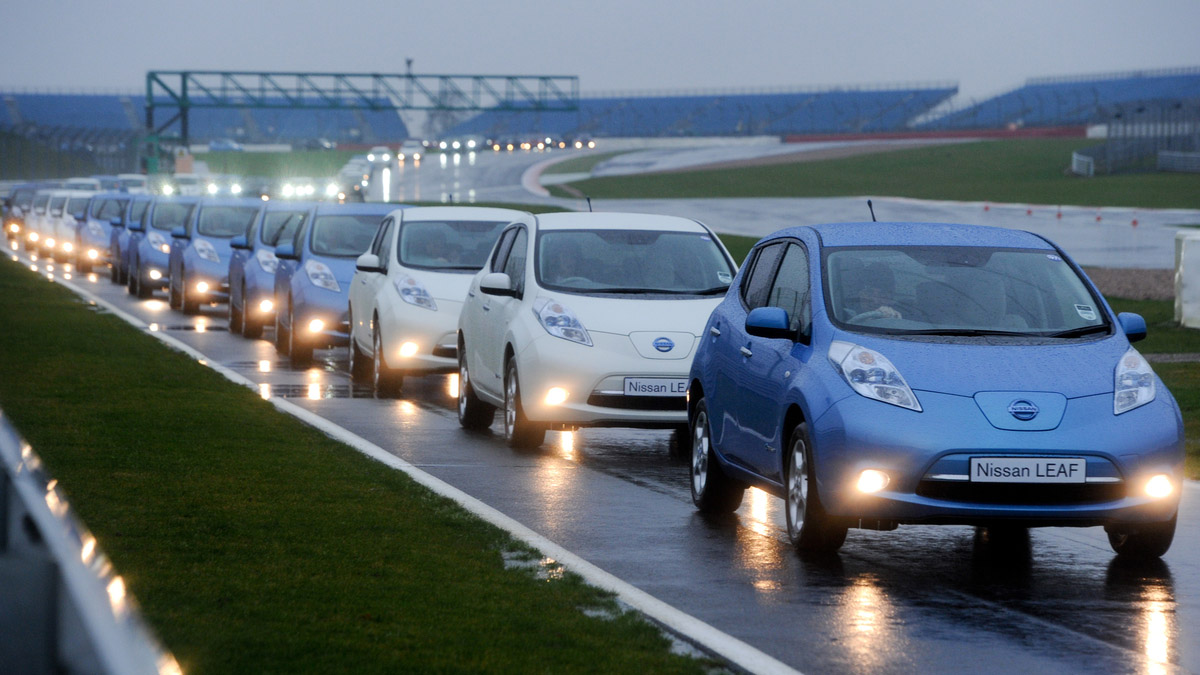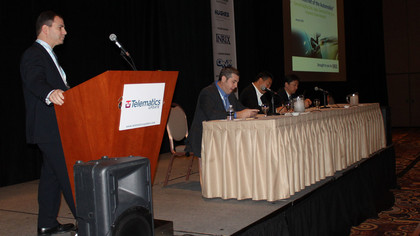How your car will use online apps
Ford, Nissan and Toyota chew over internet in cars

Sign up for breaking news, reviews, opinion, top tech deals, and more.
You are now subscribed
Your newsletter sign-up was successful
The digital highway is here, but nobody is quite sure which direction it will take. Given that the first intelligent cars concentrate largely on navigation and destination assist, that's slightly ironic. But there's a big prize for whoever can figure out the connected car's killer app before someone else does.
It's all about collecting data - and doing something with it via software - and that's exactly what reps from Ford, Nissan and Toyota gathered together to do at the Consumer Telematics Event in Las Vegas. Taking place on the fringes of CES 2013, this 'Driven by Data: The Internet of the Automobile' round table chewed over themes around the topic.
So what does "The Internet of the Automobile" actually mean? "It's not going to be the same internet that we expect to see on our mobile devices or even at home," says Brian Inouye, national manager of advanced technologies at Toyota.
"It's geared more towards the vehicle and it's specific to your driving experience. The connected car adds the ability to enhance the driving experience, whether it be to get you from A to B. If the vehicle is connected to the cloud then you can customise your driving experience." In short, Toyota thinks the connected car is about apps.
Everyone gets to play
John Ellis, global technologist for connected services and solutions at Ford, is keen not to leave anyone behind in the rush to connect the car. "We recognise three contexts for internet in the car - the vehicle itself, the driver, and the passengers," he says. "All three have distinctly different consuming patterns, distinctive connectivity issues, and different value propositions."
Ellis went on to underline the importance of passengers, and to remind the audience that the connected car shouldn't just benefit the driver.
Ford's way through this is the 'bringer' strategy. "You bring your own device into the vehicle, you use it to connect, and your app experience - and the way that you extend your vehicle - is personalised by you." In other words, it's all about smartphones.
Sign up for breaking news, reviews, opinion, top tech deals, and more.

Toshiro Muramatsu, chief service architect for the vehicle information technology division at Nissan, thinks that the internet of the automobile is primarily about navigation. "Traffic information is most important, and also finding the destination," he says. "Other things like using email is a long-term demand, and The Internet of Things will support that."
Inouye thinks that the connected car is on the brink, but that the right formula is, for now, elusive. "Right now we're at the point of convergence. We're enabling internet radio and the true core of vehicle diagnostics in remote interface services, but in the coming future we're fine-tuning and understanding what is safe and appropriate versus what the consumer wants," he says.
"Once you have the vehicle connected, what you do with that data will be key. Privacy will be the big question; we can syphon all the information from a vehicle, but should we do it?"
Safety first
Ellis is at pains to point out that despite the sudden enthusiasm for streamed music and infotainment, driving should always be about keeping eyes on the road and hands on the wheel. "The danger is safety - you could get caught up in your experience and forget that you're driving," he says. "Better, faster cheaper is what consumers want - but with safety."
Consumer awareness of connected car tech is limited, but how do car manufacturers introduce future apps without baffling drivers who perhaps haven't bought a new car for five years?
"Expecting the consumer to create their own account and pairing is a big gap," says Inouye of the need to set up subscription accounts, logins, and link a smartphone to an in-car system via Bluetooth. "That's why we're also looking at embedded technology."

Jamie is a freelance tech, travel and space journalist based in the UK. He’s been writing regularly for Techradar since it was launched in 2008 and also writes regularly for Forbes, The Telegraph, the South China Morning Post, Sky & Telescope and the Sky At Night magazine as well as other Future titles T3, Digital Camera World, All About Space and Space.com. He also edits two of his own websites, TravGear.com and WhenIsTheNextEclipse.com that reflect his obsession with travel gear and solar eclipse travel. He is the author of A Stargazing Program For Beginners (Springer, 2015),